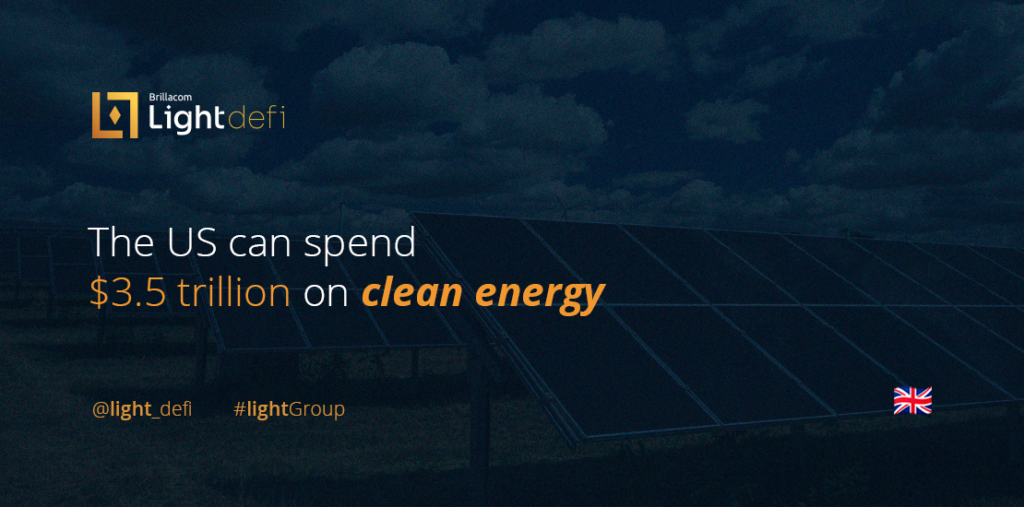After announcing a return to the Paris Agreement, the United States may soon approve a $3.5 trillion energy policy program. With a bill involving financing sustainable energy sources, the US Senate has already approved the program.
According to President Joe Biden, this may be the biggest clean energy program in the US in decades. As a presidential campaign, Biden promised to reduce the country’s greenhouse gas emissions by 50%.
Like the United States, which intends to invest heavily in clean energy, Light DeFi wants to be one of Brazil’s largest suppliers of solar energy. The token plans to develop a photovoltaic plant that can produce up to 200 MW in the future.
Solar energy gains prominence in the United States
Along with China, the United States is the leading emitter of greenhouse gases on the planet, and a large part of this comes from the burning of fossil fuels, such as gasoline and diesel, for example.
Seeking to reverse the use of fossil fuels over the next few years, the US plans to invest $7.5 billion in charging stations for cars that use electricity.
The country will also invest in solar energy in vehicles to transport children to school. It should allocate US$ 5 billion for the purchase of cars fueled by solar energy and hybrids.
Light DeFi represents the future
Light DeFi is in line with the climate policies of the world’s largest countries, such as the United States and China, which aim to reduce as much as possible the emission of greenhouse gases by developing sustainable initiatives for the production of energy.
With an eye to the future and how the solar energy industry will consolidate in the coming years, Light DeFi was created to finance a photovoltaic plant project.
In the end, the plant will have a solar energy production capacity of up to 200 MW, which can supply 110,000 homes with a renewable energy source, which combines blockchain technology with the planet’s sustainable development.


